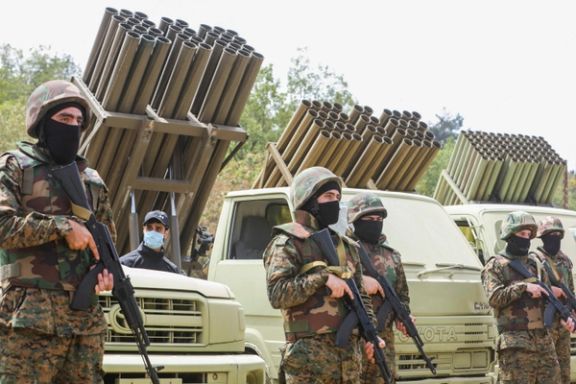Concerns Mount Over Full-Scale War Between Israel, Hezbollah

Amidst the Gaza war, tensions on Israel's northern front are mounting, fueling concerns of a second war on the horizon from Iran's biggest proxy militia.

Amidst the Gaza war, tensions on Israel's northern front are mounting, fueling concerns of a second war on the horizon from Iran's biggest proxy militia.
Based on a report by Guardian, many within Israel perceive Hezbollah as a more substantial threat than Hamas, leading to an increasing belief among Israeli politicians, generals, and a segment of the public that a new conflict in Lebanon is becoming unavoidable.
Initial calls for a preemptive strike by Israeli hawks were halted by US intervention, preventing immediate military action. However, recent developments, including a November opinion poll indicating 52% support for an immediate strike against Hezbollah, suggest a shifting sentiment within the Israeli population.
The intensification of the conflict has resulted in a rising civilian death toll, with four Israelis and at least 14 local Lebanese reported dead, according to Guardian. Israeli drone and tank strikes have claimed the lives of three journalists. Despite 17 years of relative calm since Israel's second Lebanon war, the terms outlined in UN Security Council Resolution 1701 in 2006, requiring Hezbollah to pull back from the border and disarm, remain unimplemented.
Since October 7, when Iran-backed Hamas invaded Israel, hundreds of thousands of Israelis have been displaced from their homes on both the Gaza and Lebanon borders.
Hezbollah has reportedly amassed a formidable arsenal, with Iranian support, comprising over 120,000 rockets capable of overwhelming Israel's Iron Dome defenses and causing significant damage. It would trigger a war which would be immensely destructive to both sides.
After the Hamas attack on Israel, Hezbollah conducted measured operations, firing on border villages and sending raiding parties across the border. Such actions, seemingly expressing solidarity with the Palestinians without provoking a full-scale war, may indicate a delicate balance in the region. The situation remains fluid, with the international community closely monitoring developments and expressing deep concern over the potential for further escalation.